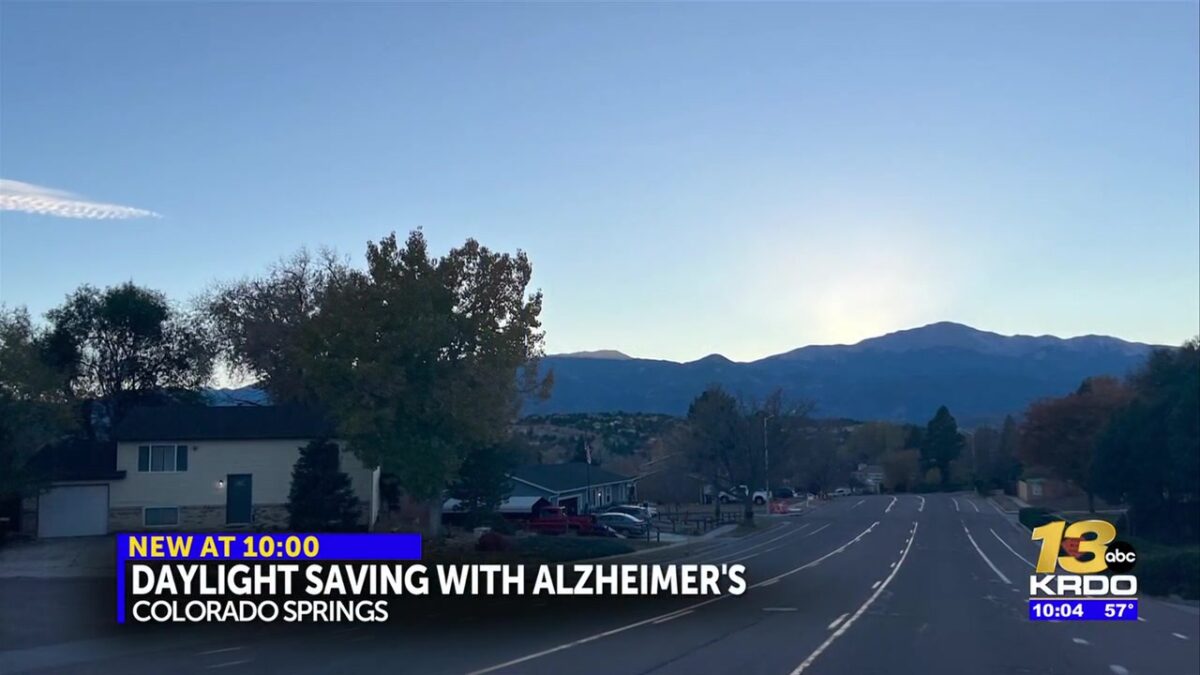With Alzheimer’s, daylight saving time means more than just an extra hour of sleep

Marina Garcia
COLORADO SPRINGS, Colo. (KRDO) – Sunday morning, all of us had to adjust our clocks by one hour, and while daylight savings can be bothersome, an extra hour of sleep is always a good thing.
But for those living with Alzheimer’s, it can be a confusing change, causing agitation and discomfort, hastening the disorientation that comes with ‘sundowning’.
The term sundowning refers to a group of symptoms that occur in people with dementia. Those symptoms can include anxiety and delusions, and the daylight saving time change makes them worse.
We spoke to a woman living with Alzheimer’s, Joanna Fix, who was diagnosed at the young age of 48 years old.
“When it hits you in the middle of your life, you’re really on a planet. You’re so isolated that you’re kind of paralyzed for a time,” says Fix.
But after nine years, she and her husband say they’ve made adjustments to live a happy life.
They play games to implement cognitive training, they put the Christmas tree up early, so she remembers what season we are in, and she makes sure to get her daily exercise.
But there are still some inevitable obstacles, like daylight saving time.
“It’s nice to have an extra hour to do things, but it’s not nice when you are relying on your environment to move throughout your day,” says Fix.
KRDO13 spoke to a specialist who says this type of change can be very disorienting.
“It’s really important for family caregivers to be aware that this can be a challenge for their loved ones, because roughly 80% of all people living with Alzheimer’s are cared for at home,” says Jim Herlihy, Alzheimer’s Association vice president of communications.
And Joanna says her husband, who proposed to her after being diagnosed, is the support she wishes everyone had.
“Life is totally different, but it’s actually really good now. And I’m happy. I think my sweetheart is happy most of the time. I think the dogs are okay and happy. And, you’ve got to count your blessings, and I’ve lost count. I have so many,” says Fix.
Every case of dementia is different, with many variations. If you are a caregiver or someone seeking guidance, you can call a 24/7 helpline at 800-272-3900 to speak to a trained professional.